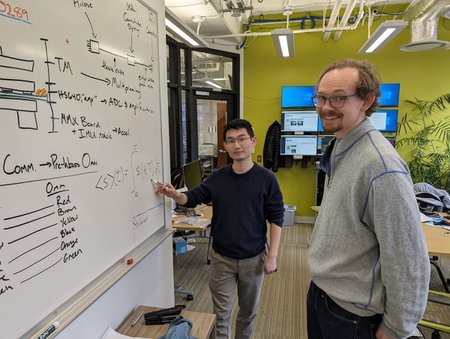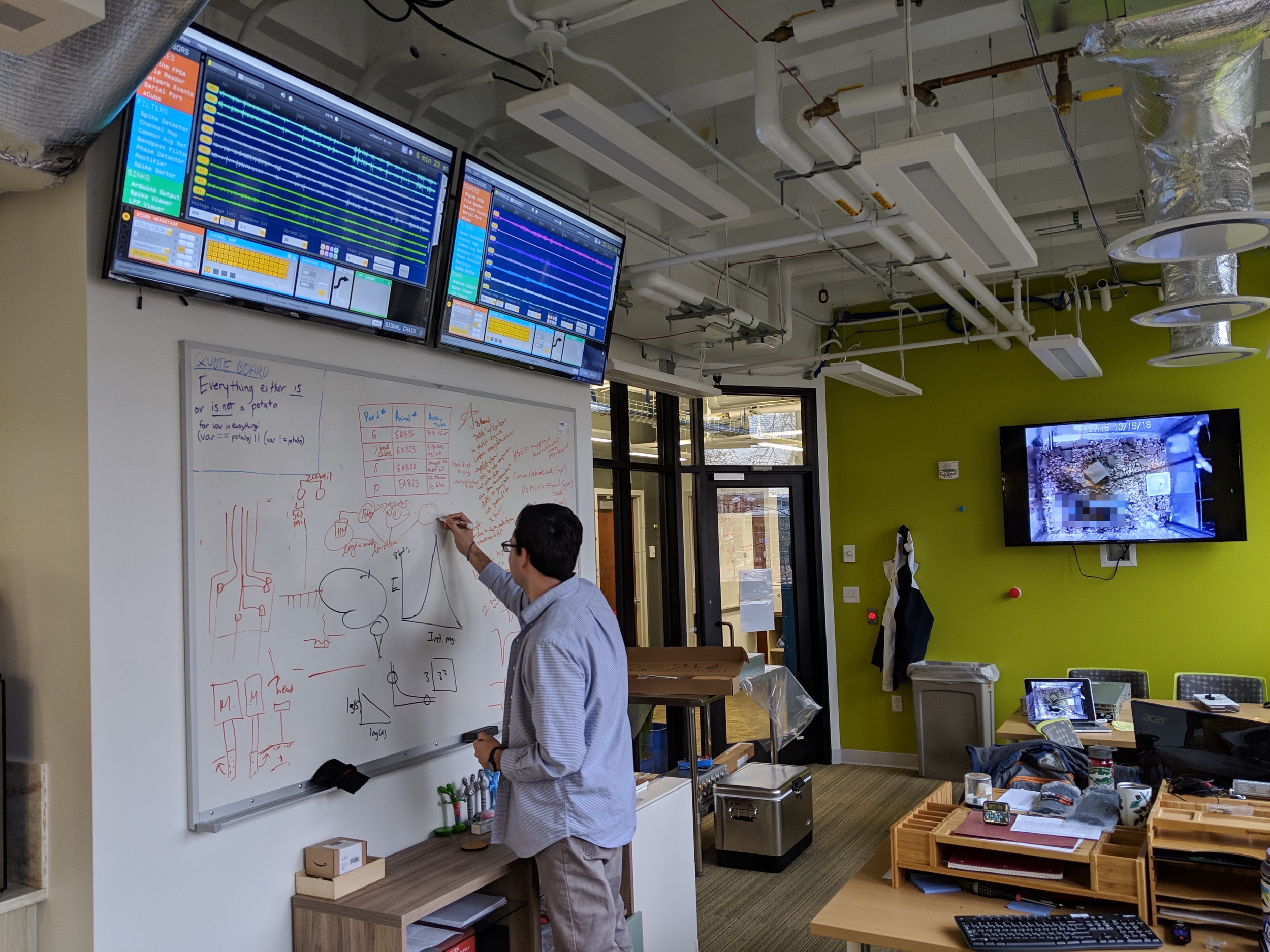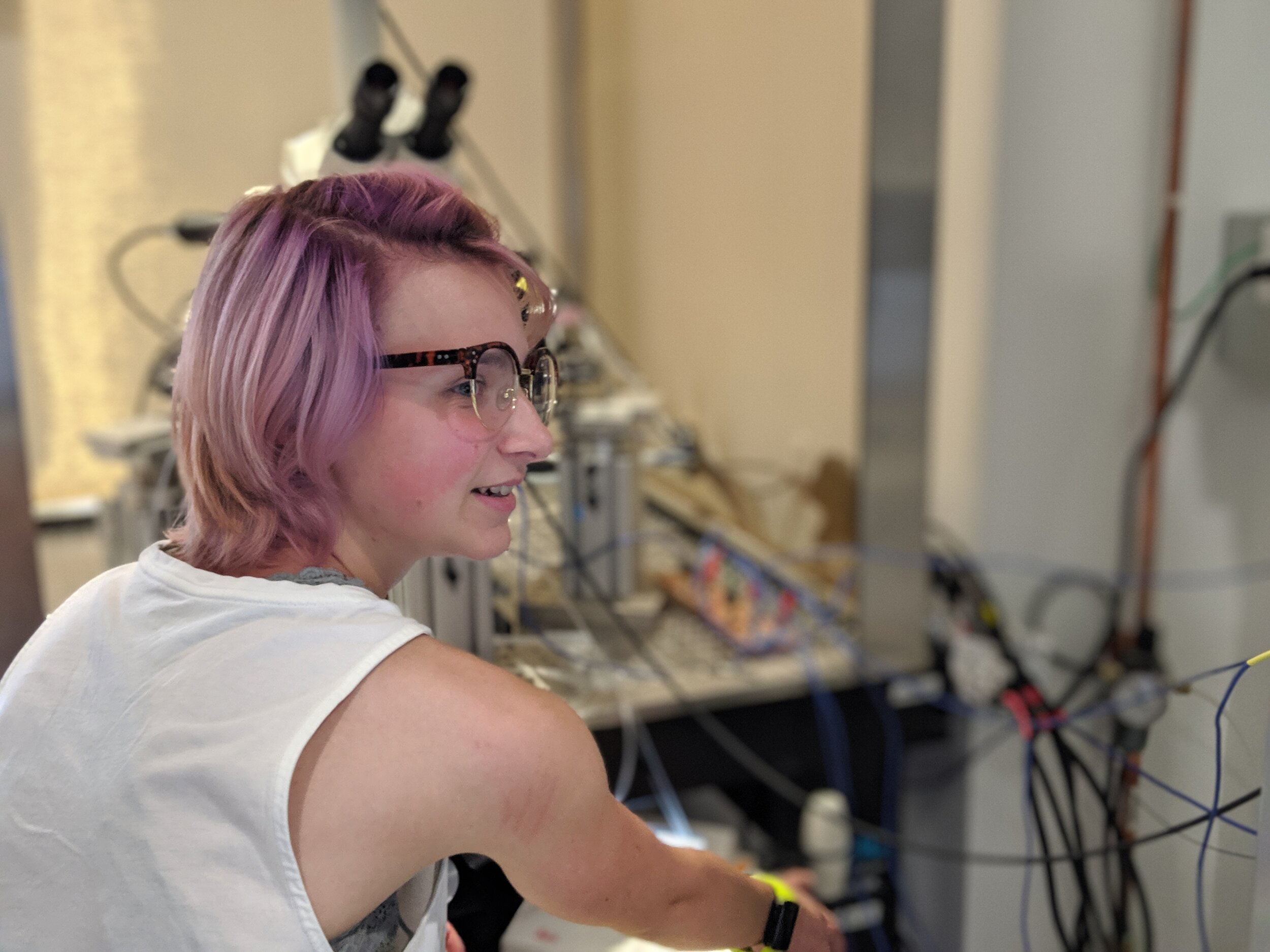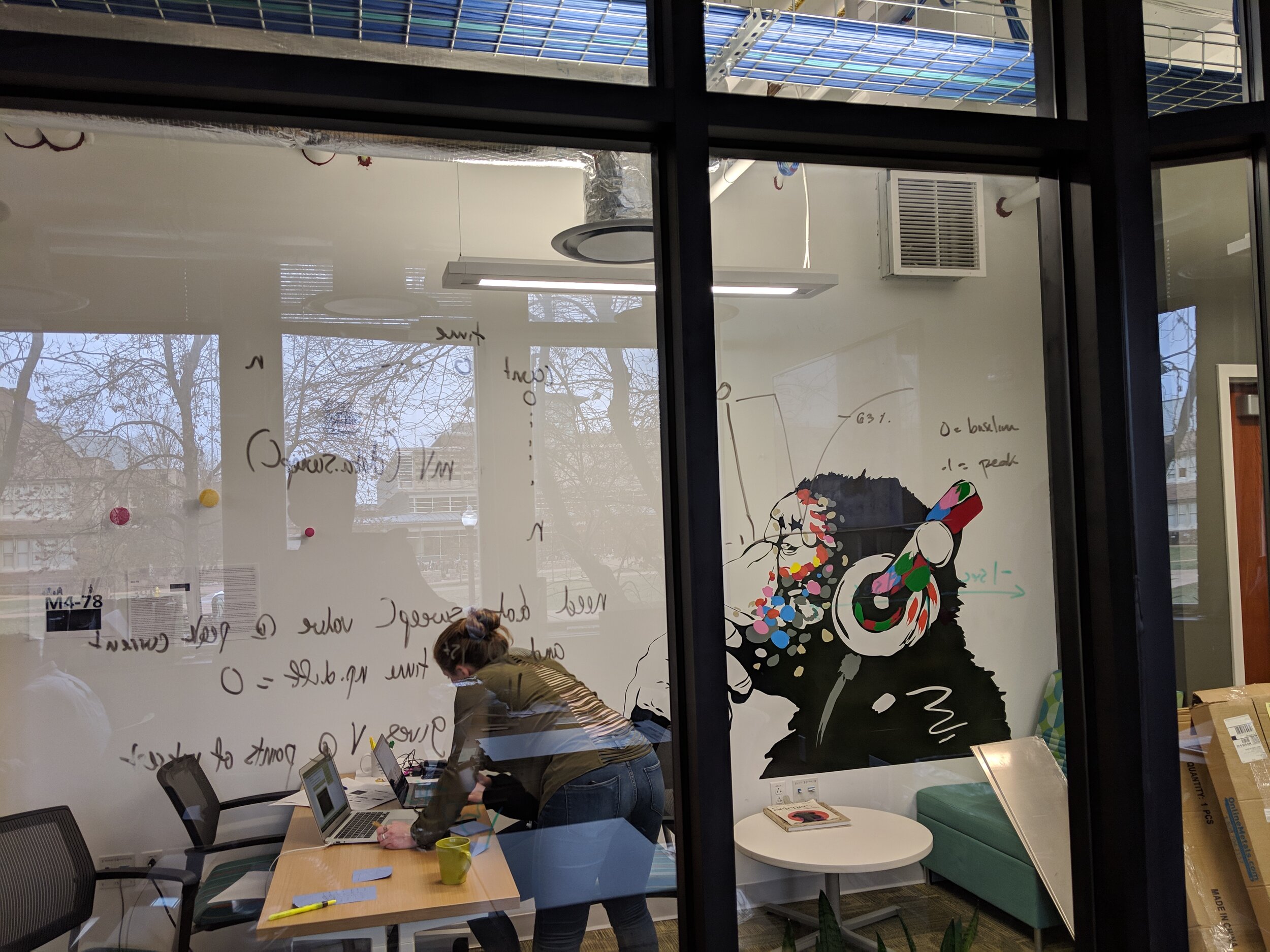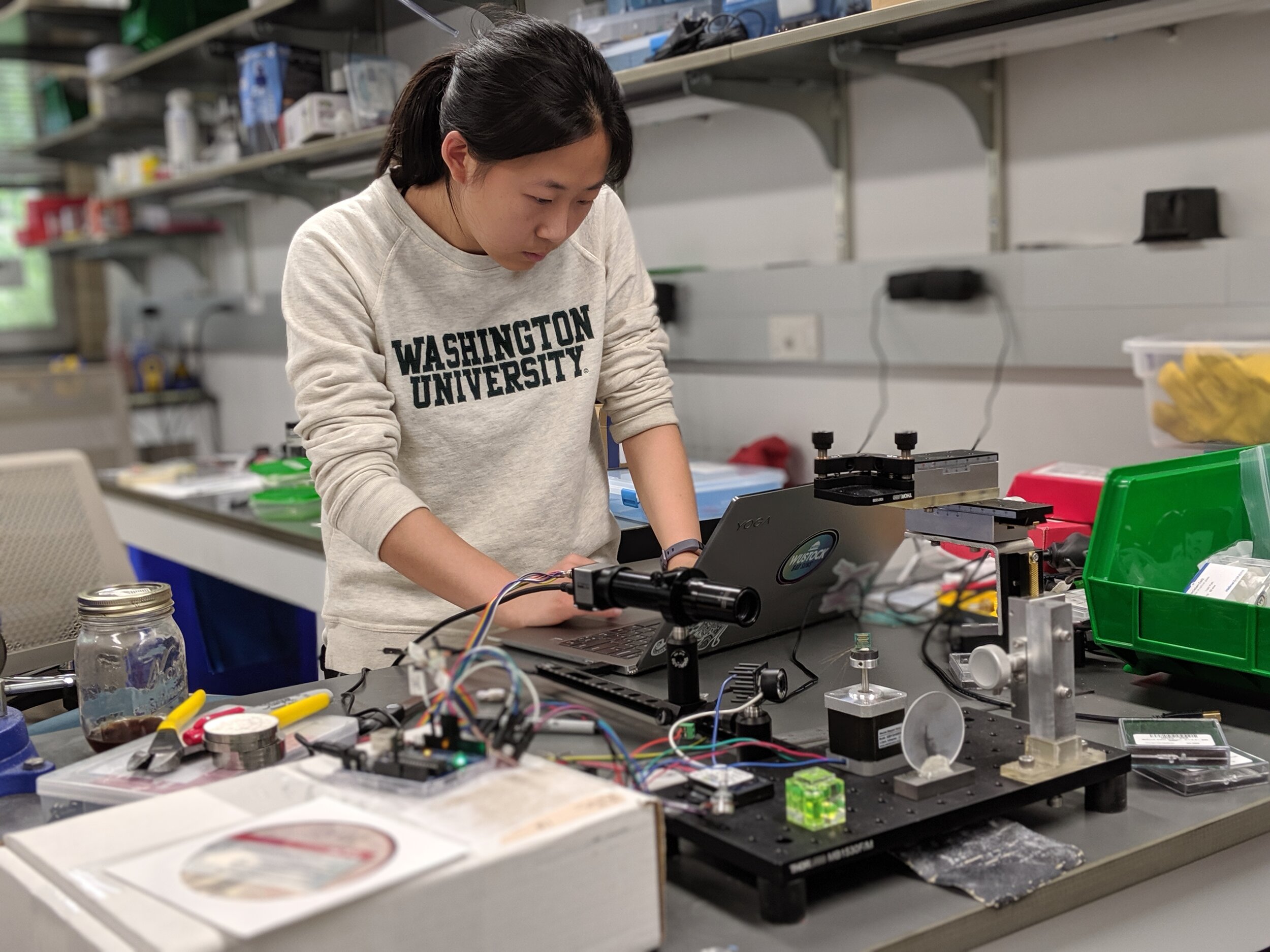The reliability of brain function is stunning. Hundreds of thousands to billions of neurons come together and give rise to cognition and behavior, and somehow, these interactions are consistent for decades (in healthy humans, at least). This robustness is all the more impressive given that cellular components are inconstant, proteins turn over in seconds to hours, and experience is a powerful modifier. Despite this, our ability to recognize objects, control our limbs, and recall complex ideas is so consistent that it is largely taken for granted in daily life. At the same time, it is failures in the reliability of neural networks that define many pathologies, such as Alzheimer’s disease and other degenerative conditions.
The goal of our group is to understand how neural networks generate robust computation and dynamics. In particular, we employ systems and computational neuroscience techniques to study the self-organization of complex brain activity in freely behaving animals.
We are extremely collaborative, and work closely with experts in theoretical physics, machine learning, computational biology, and Alzheimer’s disease. Our work involves math, physiology, behavior, computer science, molecular biology and theory. Curious people from any background are welcome in the lab, and we’re excited to share data, tools, and ideas. Get in touch!


